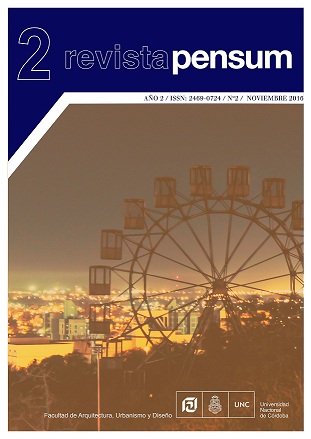UTOPY AND PROJECT IN AMERICAN HISTORY
DOI:
https://doi.org/10.59047/2469.0724.v2.n2.16428Keywords:
Socio spatial utopy, European experiments in America, Experimental utopism, American modernityAbstract
While the notion of utopia appears in Europe with Thomas More in the early sixteenth century, it quickly articulates with America whose operations of conquest and colonization has much to do. Not only More used on the cover of the original edition a schematic map of Tenochtitlan but Europe gives to recent colonies an enabling space to realize their utopian ideas from a systemic notion of the city to different versions of settlements and utopian societies by actions of the religious orders. Since then not only this first globalization is articulated around this Renaissance concept forged in Europe but then spreads to other manifestations of utopian practices from the largely frustrated socialist experiences to anarchists or figures productive paternalism to lead to certain expressions of modernity from the happy versions of collective housing to technological, typological and urban experimentalism of great utopians as Sergio Bernardes or Amancio Williams.References
Brading, D. (1991) Orbe Indiano. De la Monarquía Católica a la República Criolla, 1492.1867, México, FCE.
Gerbi, A. (1992) La Naturaleza de las Indias Nuevas. De Cristóbal Colón a Gonzalo Fernández de Oviedo, México,
FCE.
Ungers, L. y O. (1989) Comunas en el Nuevo Mundo: 1740-1971, Gili, Barcelona, 1978.
Terán, F. (1989) El sueño de un orden: la ciudad hispanoamericana, Madrid, Ministerio de Fomento.
Hachette-Del Solar, (1982) Dos utopías argentinas, Buenos Aires.
Gómez Tovar, L., Gutiérrez, R., Vázquez, S. (1991) Utopías Libertarias Americanas, seguido de la transcripción de La Ciudad Anarquista de Pierre Quiroule, Madrid, Tuero.
Zuidema, Tom R. (1989) Reyes y Guerreros. Ensayos de Cultura Andina, Lima, Fomciencias.
Severi, C. (2010) El sendero y la voz. Una antropología de la memoria, Buenos Aires, SB.
Brotherston, G. (1997) La América Indígena en su literatura: Los Libros del Cuarto Mundo, México, FCE.
Calvacanti, L. (2004) Sergio Bernardes. Heroi da uma tragedia moderna, Rio de Janeiro, Brasil, Dumará.
Calvacanti, L., (2008) A importancia de Ser(gio) Bernardes, ensayo editado en Arquitextos-Vitruvius 110, San Pablo, Brasil.
Nota
La mayoría de las imágenes fueron cedidas por sus autores y otras provienen de sitios web de acceso libre.
Downloads
Published
Issue
Section
License
Authors who publish in this journal agree to the following terms:
a. Authors retain copyright and guarantee to the journal the right to be the first publication of the work as well as licensed under a Creative Commons Attribution-ShareAlike 4 license.
b. Authors may separately establish additional agreements for non-exclusive distribution of the version of the work published in the journal (e.g., placing it in an institutional repository or publishing it in a book), with an acknowledgement of its initial publication in this journal.
c. Authors are permitted and encouraged to disseminate their work electronically (e.g., in institutional repositories or on their own website) before and during the submission process, as this may result in productive exchanges, as well as earlier and greater citation of published work (See The Effect of Open Access).
d. 4.0 International Creative Commons Attribution-ShareAlike 4.0 License.












